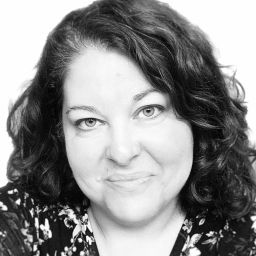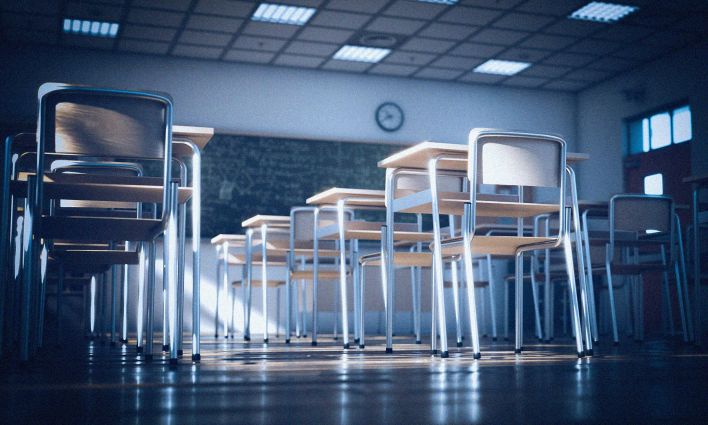If I’ve learned anything from my two decades as a secondary school teacher, it’s that we underestimate young people. Teenagers are preoccupied with pop culture, social media, and video games, we think; oblivious to the news, to the political issues of the day, to the daily struggles that others face. Yet, my experience tells me that nothing could be farther from the truth.
Like most people, teens are very interested in learning about themselves and other humans. In the process of forming their own identities, teens are great observers of life, yearning to figure it all out. As a social science teacher, I am privileged to be able to assist them.
My job isn’t to give students the answers, though; it is to guide them to come up with the answers themselves.
Enter the work of the Canadian Centre for Policy Alternatives.
Dusty old textbooks don’t cut it in my classes, especially in the social sciences. They are frequently out of date, and the exorbitant cost to replace them is increasingly an impossibility for shrinking school budgets. In contrast, research from the CCPA is current, credible, relevant, and accessible—a social science teacher’s dream resource. The CCPA’s work is a mainstay for many of the issues students learn about in my classes, both in person and online. Chances are high that if my students are interested in something, the CCPA has information on the topic that I can draw upon as a teacher and guide my students to explore.
The March/April 2023 edition of the Monitor and its articles on income inequality is the perfect example, hitting my mailbox as news circulated that Galen Weston, CEO of Loblaws, was awarded a $1.2 million dollar raise in 2022, bringing his total compensation up to $11.79 million. This as grocery bills for my students’ families continue to soar, wages remain largely stagnant, and the cost of housing and rent skyrockets.
Imagine this through the eyes of a 17 year-old as they plan for post-secondary education and the prospect of moving out on their own for the first time. How does the guy responsible for a $37 pack of chicken in Toronto manage to earn such an exorbitant amount, while more Canadians than ever before are forced to rely on food banks?
With a view to helping my students explore the answer to this question, I have incorporated the CCPA’s research on inequality as part of an upcoming Sociology unit in a Grade 11 course. Using the case of Galen Weston as a jumping-off point, students will explore CEO pay in Canada.
This budgeting task is designed to shine a light on the economic realities of so many individuals and families in our community, particularly as a large proportion of the students I teach come from privileged means.
Routinely subjected to the power of adults, teenagers keenly understand fairness; I anticipate some indignation when students discover that the most highly paid CEOs in Canada, who are overwhelmingly men, had already made the average yearly salary of a Canadian worker by 9:43 am on January 3 of the new year. (Like many members of the public, the distinction between a salary and the bonuses that make up the bulk of CEO compensation will likely be of little interest to them.) In contrast, the shocking fact that these CEOs make 243 times more than the average worker is likely to catch their attention, as will the statistic that between 2019 and 2020, the bottom half of Canadian tax filers saw a 14% drop in their average total income.
Small groups of students will be tasked with an exercise where they try to build a monthly household budget around different categories of income in their community. For this, they will need to conduct their own research and calculate an estimated monthly income based upon available salary data for private and public sector workers, current minimum wage rates, and Ontario Disability Support Payments. Once they have established their monthly salary, students will research average costs of rent and housing, transportation, post-secondary tuition, and data on the current costs of groceries and child care. They will then create an overall budget for their assigned ‘family.’
I expect the same results and reactions from students that I encountered when I first piloted this assignment last year, particularly those assigned ‘families’ with the lowest income categories. I recall the words of one frustrated student, who had tried to calculate and recalculate his monthly budget several times to try to make it work. Exasperated, he announced to the class: “No one can live on this. It’s impossible. We will be homeless.”
This budgeting task is designed to shine a light on the economic realities of so many individuals and families in our community, particularly as a large proportion of the students I teach come from privileged means. It also illuminates the direct connection between public policy and the lived lives of those whom these policies impact the most.
Informed by this new understanding, students will turn to the root causes of inequality. Using data from the Monitor and other sources, I will invite students to take an intersectional approach, and to consider how Indigeneity, race, gender, and disability are also factors in inequality. Students will explore the growing body of research, captured in accessible news reports, that demonstrates how this inequality has been compounded by the pandemic, especially for those from marginalized communities.
Students will be asked to think about who has the power to reduce inequality, and how that power could be influenced and/or exercised. As a class, we will consider and debate solutions proposed by contributors to the Monitor and elsewhere. How might affordable child care help? What if we made it easier for workers to unionize? What if governments taxed the rich and put controls on how much CEOs can earn? Would a basic income for all Canadians be an effective approach to inequality? What if employers were obligated to pay a living wage rather than just a minimum wage, with raises indexed to inflation? How do we move more politicians to enact policies that assist the most marginalized citizens among us, policies that consider intersecting systems of oppression? Each of these questions opens the door to potentially more inquiry and further study.
To consolidate, I will ask students to think about other ways that we can tackle the inequality and poverty that continues to grow sharply with each passing year. As young people with a unique perspective, I have no doubt that they will come up with some creative suggestions. I have found that asking them individually to reflect in a personal journal provides them with the time and space to collect their thoughts and synthesize their learning. I always look forward to reading them.
In her Monitor article ‘Education: Inequality’s solution or great reinforcer?’ Erika Shaker ponders the role of public education in inequality, particularly as it has fallen to neoliberal policy and chronic underfunding right across the country. There is no question that public education’s dual roles of preparing students for work and preparing them as good citizens are repeatedly pitted against one another by neoliberal governments eager to shape the system in their own ideological image. Sadly, at this moment in time, the notion that students must be shaped as labourers first is winning at the structural level, especially here in Ontario.
But on an individual level, behind a closed door in a classroom, there remains the opportunity and the space to invite students to challenge the status quo and to envision a community and a society that works for everyone. Using the tools that the CCPA provides, we can imagine and build a better place for all.







